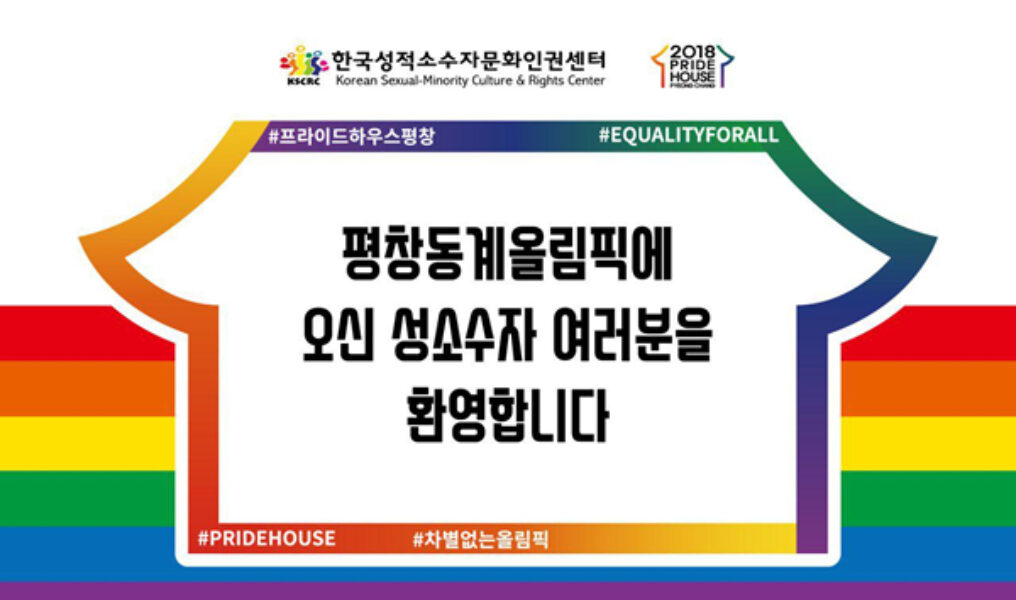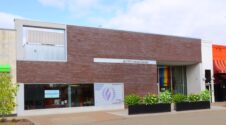A South Korean LGBTI advocacy group is behind the Pride House at the 2018 Winter Olympics in Pyeongchang.
The Seoul-based Korean Sexual Minority Culture and Rights Center and Pride House International organized the Pride House, which is located inside the Canada Olympic House in the Olympic Village.
The Pride House earlier this week held an opening reception. Candy Yun, a bisexual activist who is the Korean Sexual Minority Culture and Rights Center's International Solidarity Manager, and her colleague, Minwoo Jung, on Tuesday told the Washington Blade during a Skype interview from Seoul their organization also plans to hold a viewing party at an LGBT-friendly coffee shop in the South Korean capital on Feb. 17 for the men's figure skating free skate competition.
Jung told the Blade the viewing party will allow LGBT sports fans "to watch the show in an LGBT-friendly environment." Jung and Yun also noted their organization published a media guide that defines LGBT-specific terms and includes guidelines for reporters who are covering LGBT athletes and issues at the games.
"In the last few Olympics, the Korean media has been writing a lot from the gender binary perspective, which means they consciously or unconsciously strengthen the ideology of gender, the two gender binary, that there's only female versus male and then a man should be manly and a woman should be womanly," Jung told the Blade. "It was very much strengthened throughout the Olympic games here in the past two cycles, especially in the local Korean media. We wanted to correct that."
Jung added a Korean media outlet recently published an article about members of the Canadian women's hockey team that asked whether they are women "because they look so muscular."
"We wanted to bring this up as an important issue and disseminate this idea that sports is not about gender," Jung told the Blade. "It can be neutral."
Canadian Olympic Committee hosting Pride House
Several Brazilian LGBT advocacy groups operated a Pride House during the 2016 Summer Olympics in Rio de Janeiro. Pride Houses were also open during the 2012 Summer Olympics in London and the 2010 Winter Olympics in Vancouver.
Canadian Olympic Committee CEO Chris Overhold in a Feb. 6 statement said the Canadian Olympic Committee "stands behind its commitment of inclusion and diversity in the global sport landscape."
"By hosting Pride House in our Canada Olympic House, we are extending our warmest welcome to all from every corner of the world to celebrate 'Be Olympic,'" added Overhold. "Team Canada is proud to embrace its diversity at Canada House, which includes a sign at the front door, welcoming all and knows that as a team, we are stronger when we celebrate our differences."
The International Olympic Committee in 2014 added sexual orientation to the Olympic Charter's anti-discrimination clause, known as Principle 6, after global outrage over Russia's LGBT rights record overshadowed the 2014 Winter Olympics in Sochi. The IOC also added an anti-discrimination clause to host city contracts.
Discrimination and stigma based on sexual orientation and gender identity remains commonplace in South Korea. A provision of the country's military penal code that has been challenged in court criminalizes consensual same-sex sexual relations among soldiers.
Yun pointed out to the Blade the Pyeongchang Organizing Committee has adopted the IOC's anti-discrimination provisions that include sexual orientation.
The U.N. General Assembly last November adopted a gay-inclusive "Olympic Truce Resolution" that calls for peace around the world during the games. The U.S., France and Brazil blocked Egyptian and Russian efforts to remove a reference of Principle 6 from the resolution.
"People now know that they shouldn't discriminate (against people because of their) sexual orientation or gender identity," Yun told the Blade. "I hope at the Olympics or after the Pride House that people may try to understand that any person in the sporting community can be out."
Jung agreed.
"Through these Pride House Pyeongchang events and programs, we wanted to promote that sports can be a venue for everyone who's interested in not just strengthening their body and soul, but also diversity and inclusion and equality," he said.
This article originally appeared in the Washington Blade and is made available in partnership with the National LGBT Media Association.











